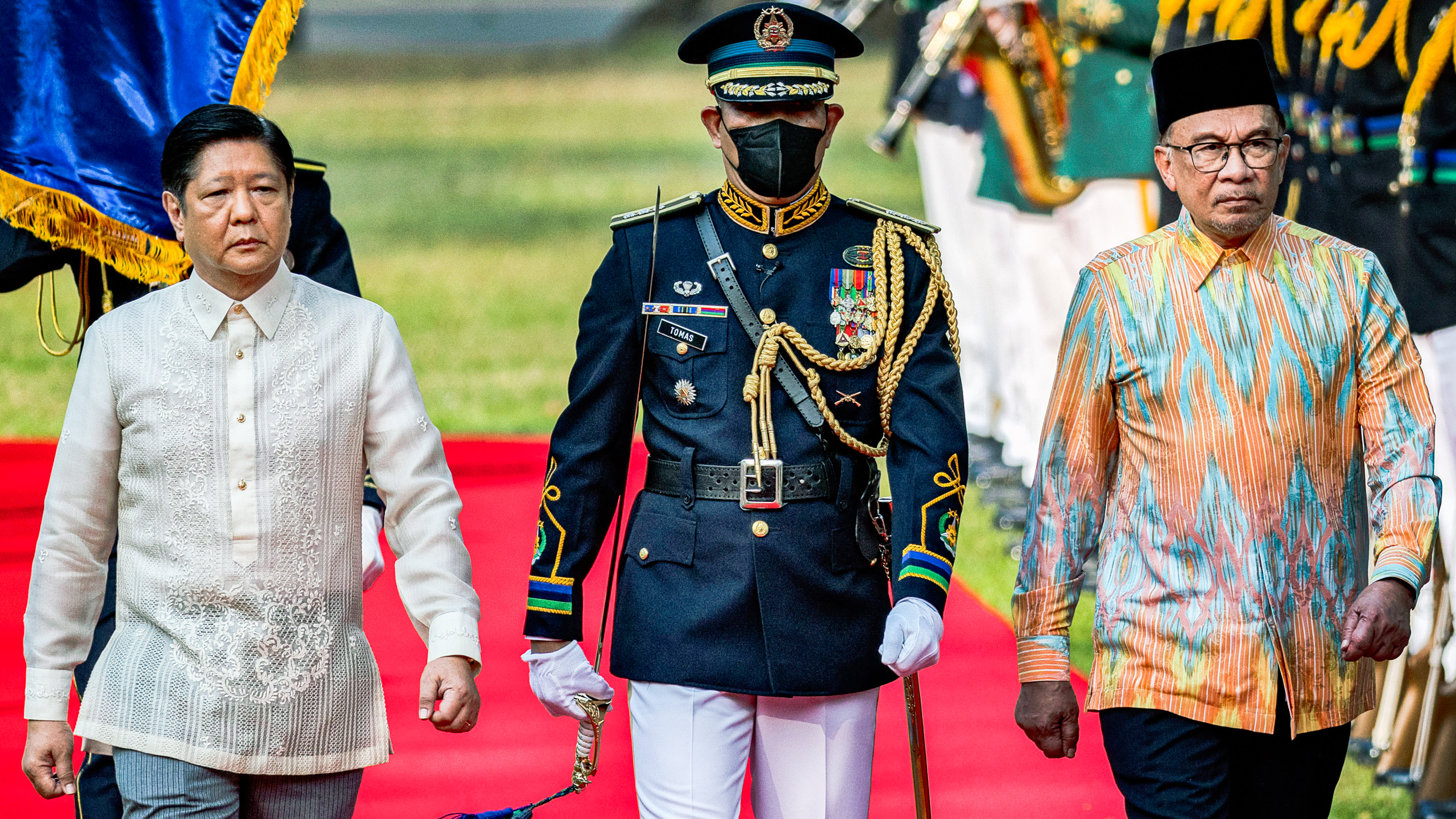Double Standards? Examining Britain And Australia's Approach To The Myanmar Crisis

Table of Contents
UK's Response to the Myanmar Crisis
The UK's response to the Myanmar crisis has involved a multi-pronged approach encompassing sanctions, diplomatic engagement, and humanitarian aid.
Sanctions and Economic Pressure
The UK has imposed targeted sanctions against members of the Myanmar military junta responsible for the coup and the ensuing violence. These sanctions, designed to cripple the regime's financial capacity, include:
- Travel bans: Prohibiting designated individuals from entering the UK.
- Asset freezes: Seizing assets held by sanctioned individuals and entities within UK jurisdiction.
However, the effectiveness of these sanctions remains a subject of debate. Concerns exist regarding potential loopholes and the junta's ability to circumvent these measures through alternative financial channels. The impact on the civilian population also needs careful consideration, as sanctions can inadvertently harm those already vulnerable.
Diplomatic Engagement and International Cooperation
The UK has actively participated in international forums like the UN Security Council and ASEAN, advocating for a peaceful resolution to the crisis and pushing for accountability for human rights violations. Specific diplomatic initiatives include:
- Collaboration with other nations to coordinate sanctions and diplomatic pressure.
- Public condemnation of the military regime's actions and support for the National Unity Government (NUG).
Despite these efforts, achieving consensus within the international community on a unified response has proven challenging, particularly due to differing national interests and geopolitical considerations.
Humanitarian Aid and Support for Refugees
The UK has provided significant humanitarian aid to those affected by the Myanmar crisis, both within Myanmar and in neighboring countries. This aid includes:
- Funding for international organizations like UNHCR and UNICEF providing essential assistance (food, shelter, medical care).
- Support for refugee resettlement programs in neighboring countries.
However, access to those most in need within Myanmar itself remains severely restricted, hindering the effective delivery of humanitarian aid and posing significant challenges for aid workers.
Australia's Response to the Myanmar Crisis
Australia's response to the Myanmar crisis mirrors some aspects of the UK's approach, yet also presents notable differences.
Sanctions and Economic Measures
Similar to the UK, Australia has imposed targeted sanctions on individuals and entities linked to the Myanmar military regime. These include:
- Travel bans and asset freezes, mirroring UK measures but potentially with a narrower scope of targets. A direct comparison of the intensity and targeting of sanctions between the two nations is crucial for a comprehensive understanding.
The comparative analysis of the sanctions imposed by both countries reveals areas of overlap and divergence, providing insight into their respective priorities and strategic goals.
Diplomatic Initiatives and Regional Cooperation
Australia's engagement with the Myanmar crisis has focused on regional cooperation within ASEAN and bilateral diplomatic efforts. These initiatives include:
- Collaboration with ASEAN members to promote a peaceful and inclusive solution.
- Engagement with regional organizations to address the humanitarian consequences of the crisis.
However, Australia’s influence within ASEAN, compared to the UK’s, might be perceived as comparatively limited, affecting the overall impact of its diplomatic initiatives.
Humanitarian Assistance and Refugee Support
Australia's humanitarian assistance to those affected by the Myanmar crisis, while substantial, differs in scale and strategy compared to the UK's efforts:
- Funding directed towards various international organizations providing aid and support.
- Support for refugee resettlement programs, though potentially with a different focus based on Australia’s specific resettlement policies.
Understanding the allocation of aid and its geographic focus helps in assessing the effectiveness of both nations' humanitarian responses.
Comparing and Contrasting the Approaches
A comparative analysis of the UK and Australia's responses reveals both similarities and significant differences.
Similarities and Differences in Strategy
Both countries have implemented targeted sanctions, engaged in diplomatic efforts, and provided humanitarian aid. However, the scope and intensity of these actions vary considerably:
| Feature | UK | Australia |
|---|---|---|
| Sanctions | Broader scope, more individuals targeted | Narrower scope, potentially fewer targets |
| Diplomatic Role | Active in UNSC and multilateral forums | More focused on regional cooperation |
| Humanitarian Aid | Larger scale, more widely distributed | Potentially smaller scale, targeted focus |
These variations likely stem from differing national interests, strategic priorities, and the nature of their existing relationships with Myanmar and regional actors.
Effectiveness of the Responses
Assessing the effectiveness of both countries' responses is complex and requires ongoing monitoring. While sanctions and diplomatic pressure aim to influence the junta's behavior, the ongoing crisis suggests these measures have not yet achieved their desired impact. Humanitarian aid has undoubtedly alleviated suffering, but the scale of the crisis vastly surpasses current assistance levels. The effectiveness needs further evaluation by considering the longer-term outcomes and the impact on both the humanitarian situation and the political trajectory in Myanmar.
Conclusion
The UK and Australia's responses to the Myanmar crisis, while sharing some common features, reveal significant differences in their strategies regarding sanctions, diplomacy, and humanitarian aid. These variations raise questions about the consistency and effectiveness of international efforts to address complex humanitarian crises. Further research is critical to understand fully the factors influencing these varying approaches, ultimately promoting a more unified and impactful global response to the ongoing Myanmar crisis. Continued monitoring of both the UK and Australia’s Myanmar policies is vital to assess the long-term impact of their respective approaches and determine whether they effectively address the root causes of the ongoing crisis and the significant human rights violations.

Featured Posts
-
 Nba Draft Lottery Winners Since 2000 A Comprehensive Quiz
May 13, 2025
Nba Draft Lottery Winners Since 2000 A Comprehensive Quiz
May 13, 2025 -
 The Nightmare In Gaza Families Of Hostages Endure Unending Agony
May 13, 2025
The Nightmare In Gaza Families Of Hostages Endure Unending Agony
May 13, 2025 -
 Can You Name All The Nba Draft Lottery Winners Since 2000
May 13, 2025
Can You Name All The Nba Draft Lottery Winners Since 2000
May 13, 2025 -
 Elsbeth Season 2 Episode 18 Shocking Murder Rocks The Show
May 13, 2025
Elsbeth Season 2 Episode 18 Shocking Murder Rocks The Show
May 13, 2025 -
 Ostapenko Stuns Swiatek Again Advances To Stuttgart Semifinals
May 13, 2025
Ostapenko Stuns Swiatek Again Advances To Stuttgart Semifinals
May 13, 2025
